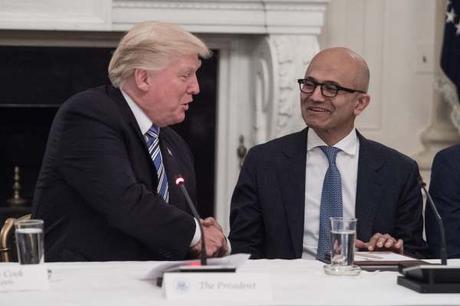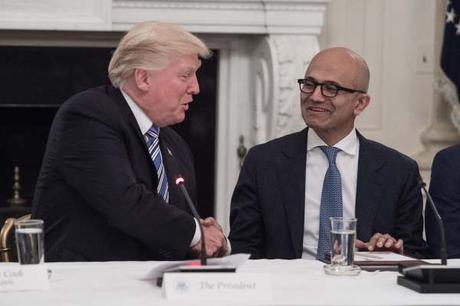

In one of the craziest news (and in 2020, which is saying something), President Donald Trump said during a media availability today that, to allow the United States government to sign a potential Microsoft / TikTok agreement, "a part very substantial of that price will have to enter the United States Treasury ", based on the rough transcription of my colleague Alex Wilhelm.
It seems almost impossible to actually execute (companies don't just quote-cancel corruption to the U.S. government to get their documents signed), but let's take it seriously: if Microsoft pay and, if so, what should they ask in any deal with the United States government?
First, a little context. ByteDance, TikTok of parent company, was valued over $ 100 billion. ByteDance owns a suite of apps, including the extraordinarily popular and focused China-based sister app Douyin, as well as Toutiao, a hugely successful news reader, so it's hard to make fun of TikTok's assessment on its own. Adding to the ambiguity is the regulatory chaos of the deal, and the fact that many pocket buyers like Facebook are out of action for direct antitrust reasons.
Let's say for example that the price is at least $ 10 billion, if not tens of billions of dollars. How should Microsoft think about a deal with the government here?
The primary goal should be to reduce Microsoft's post-acquisition regulatory headache. TikTok has well-documented privacy concerns, which also involve teenagers - an area where regulations are extremely sensitive. When Facebook faced privacy concerns on its platform, it eventually agreed on a $ 5 billion deal last year with the Federal Trade Commission to unify all the different cases and bring them to a conclusion. It also agreed on a number of restrictions and a monitoring mechanism to ensure compliance. Last year TikTok (formerly Musical.ly) agreed on a $ 5.7 million FTC privacy deal.
In addition to privacy, you have Treasury export license issues, Capitol Hill data protection issues due to the Chinese origin of the app and potential antitrust issues from Justice.
So, it's time to close a deal. Offer the government of the United States a substantial sum - perhaps even a few billion depending on the final purchase price - as a "transaction fine" in exchange for immunity from all claims related to privacy, trade and antitrust rules before of the acquisition of TikTok. Maybe it has a configuration where Microsoft has 180 days after the acquisition to resolve privacy issues, allegedly move data to its Azure cloud in the United States and put even better parental controls than TikTok has already introduced in recent months .
Far from being an atrocious configuration, this could greatly limit Microsoft's long-term liabilities and also allow the company to avoid many commitments and delays typical of large mergers and acquisitions, in which a buyer will not pay the full price. acquisition in advance for fear of future lawsuits involve significant costs.
It is terrible for the President himself to be involved in such a matter in such a direct and indelicate way. But now that President Trump has opened the door - maybe it's actually not a bad way forward as it seems at first glance. It has the power to push for an inter-agency process, align all government stakeholders and accept a level of immunity in exchange for a "fine".
A settlement cannot solve every problem. TikTok, like all Internet apps in the United States, is governed not only by federal law, but also by state privacy laws, such as the California Consumer Privacy Act. An agreement with the federal government may still conflict with relevant state laws . Furthermore, agreeing a big payment in the middle of the election season would be deeply controversial, possibly on both sides of the nave.
However, this deal is by no means typical and no one should think that it will have a typical merger and acquisition process. While few lawyers would recommend engaging with the federal government about what is actually a strange form of highway robbery - there are good reasons for paying tolls, acquiring liability protection and moving forward.
